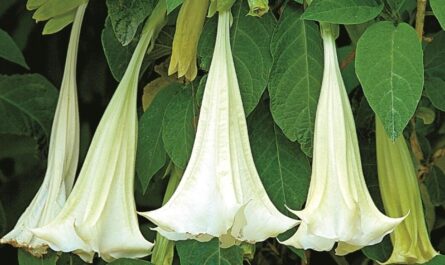Autoimmune polyglandular syndrome type 1 (APS1), also known as autoimmune polyendocrinopathy candidiasis ectodermal dystrophy (APECED), is a rare genetic disorder characterized by the dysfunction of multiple endocrine glands and the immune system. The condition is caused by mutations in the autoimmune regulator (AIRE) gene and results in the inability of the immune system to distinguish between self and non-self tissues. The key clinical manifestations include chronic mucocutaneous candidiasis, hypoparathyroidism, and adrenal insufficiency. Due to the multi-system involvement, timely diagnosis and treatment is crucial to prevent life-threatening complications. Recent advancements in genetic testing methods have enabled easy confirmation of APS1, while new treatment options help manage the symptoms effectively. The Global Autoimmune Polyglandular Syndrome Type 1 Market is estimated to be valued at US$ 257 Mn in 2024 and is expected to exhibit a CAGR of 3.1% over the forecast period 2024 To 2031.
Key Takeaways
Key players operating in the Global Autoimmune Polyglandular Syndrome Type 1 are Pfizer Inc., GlaxoSmithKline plc, Novartis AG, Mylan N.V., Teva Pharmaceutical Industries Ltd., Sanofi, F. Hoffmann-La Roche Ltd., Zydus Cadila, Lupin, Amneal Pharmaceuticals LLC., Cipla Inc., Aurobindo Pharma, Glenmark Pharmaceuticals Limited, Eli Lilly and Company, Sun Pharmaceutical Industries Ltd., Allergan, Bristol-Myers Squibb Company, Takeda Pharmaceutical Company Limited, Abbott, and LEO Pharma A/S.
The increasing awareness about the disease diagnosis and management represents a major opportunity for Autoimmune Polyglandular Syndrome Type 1Market Size players in the coming years. Additionally, ongoing research efforts for developing novel treatment strategies such as immune therapies will further aid market growth.
Recent advancements in genetic testing such as next-generation sequencing have enabled accurate confirmation of APS1 within a short span, compared to conventional methods. This has improved diagnosis and disease management.
Market Drivers
The growing patient population due to increasing diagnosis rates represents a key growth driver for the global autoimmune polyglandular syndrome type 1 market. As per estimates, around 1 in 25,000 individuals are affected by the condition worldwide. Additionally, rising healthcare expenditures on rare diseases and availability of healthcare insurance coverage for such conditions further support market expansion. Government funding and initiatives to create awareness about APS1 diagnosis and management also drives the market growth.
Challenges in Autoimmune Polyglandular Syndrome Type 1 Market
The autoimmune polyglandular syndrome type 1 market faces certain challenges which affects its growth potential. One of the major challenges faced by the market is lack of disease awareness among population. As the disease is extremely rare, not many people are aware about its symptoms and treatment options. This leads to underdiagnosis of the condition. Late diagnosis further delays appropriate treatment which can increase health complications in patients. Another challenge is absence of approved treatment regimen for the disease. Currently available treatment options are based on treating individual conditions and not the underlying syndrome. More research is required to develop targeted therapies with better clinical outcomes. High treatment cost also acts as a barrier, especially in developing regions where access to specialty medicines is limited due to affordability issues. Maintaining treatment adherence also poses compliance challenges due to requirement of lifelong medication intake.
SWOT Analysis
Strength: Increased research funding by governments and pharma companies to accelerate product development. Availability of existing treatment options for managing individual conditions.
Weakness: Rare disease with low prevalence causing difficulties in patient recruitment for clinical trials. Absence of approved drugs specifically targeting underlying disease pathology.
Opportunity: Unmet need requires advancement of new treatment paradigms like cell and gene therapies. Expanding patient outreach programs can enhance early detection and management.
Threats: High R&D costs and regulatory hurdles for rare disease therapeutics development. Market fragmentation due to multiple conditions under syndrome requiring combination products.
Geographical Regions
North America currently captures majority share of the global autoimmune polyglandular syndrome type 1 market in terms of value. Presence of advanced healthcare systems along with availability of specialty medications drive the region’s large market size. Europe is another major revenue generator owing to increasing disease awareness and supportive government initiatives for orphan diseases.
Asia Pacific exhibits fastest growth and presents lucrative opportunities for market players. This can be attributed to growing healthcare spending, rising incidence of autoimmune disorders, and improving access to diagnosis and care. Countries like India, China and Japan are expected to be key focus areas due to their huge population base and emerging pharmaceutical markets.

